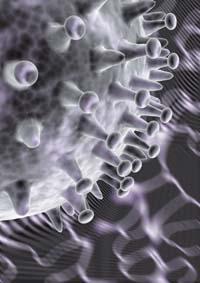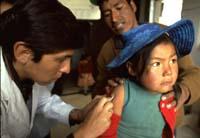Frustrated hope against AIDS

The vaccine, called V520, had been developing the prestigious pharmaceutical company Merck for more than ten years, which was the most advanced of the thirty vaccines that are testing each other.
To make the vaccine, researchers used the cold-producing virus and three genes. The virus acted as a carrier of the gene, a common adenovirus that caused the cold, but weakened, without the ability to cause the disease. The genes were three synthetic genes of the AIDS virus: gag, pol and nef. Thus, since the vaccine had no virus that produced living AIDS, it was impossible for the disease to occur, but it was expected to have an influence on the immune system.
In fact, if a person becomes infected with the AIDS virus after its introduction, researchers believed that their immune system would know the genes of the virus and would cause antibodies to the infection. In this way, the person would be protected from AIDS thanks to the vaccine.
The vaccine gave good results in monkeys and, in a first test with people, seemed able to promote an immune response. Now the vaccine was in the second phase of clinical sessions. Both vaccines and other drugs must pass three phases before going to market and the V520 managed to pass the first filtering.
In the second phase

In this second phase they had to try the vaccine with three thousand volunteers and wanted to check two aspects. On the one hand, they wanted to know if the vaccine prevented their infection and, on the other, in those who were already infected, if it reduced the number of viruses in the blood.
First they tested it with a thousand five hundred volunteers. All were people without AIDS but at high risk of contagion, from different countries (Australia, Brazil, Canada, Dominican Republic, Haiti, Jamaica, Peru, United States...). Half of the volunteers were vaccinated and the rest of the volunteers enjoyed. After a period of time, the results were provisional and really disappointing: in the vaccinated group 24 took AIDS and in the unvaccinated 21. That is, the vaccine did not prevent infection. It was also checked if the number of viruses in infected people decreased, and also in the street.
In view of the results, it was decided to suspend the investigation. Merck has announced that she will continue to investigate the AIDS virus and look for new vaccination routes.
The vaccine, a hope

According to experts, it will be almost impossible to beat AIDS without vaccines. In the most industrialized countries, in part, AIDS has become a chronic disease, but there is still much work to improve the quality of life.
However, the situation is even worse in developing countries. In them, AIDS is a deadly disease and preventive measures are scarce. For economic and cultural reasons, many people take no steps to protect themselves from AIDS and the disease is spreading alarming. Every day 14,000 people are contaminated and, according to experts, an effective vaccine would prevent 70 million infections for fifteen years. Therefore, there is no doubt that we must continue to investigate.
Published in 7K.
Buletina
Bidali zure helbide elektronikoa eta jaso asteroko buletina zure sarrera-ontzian











